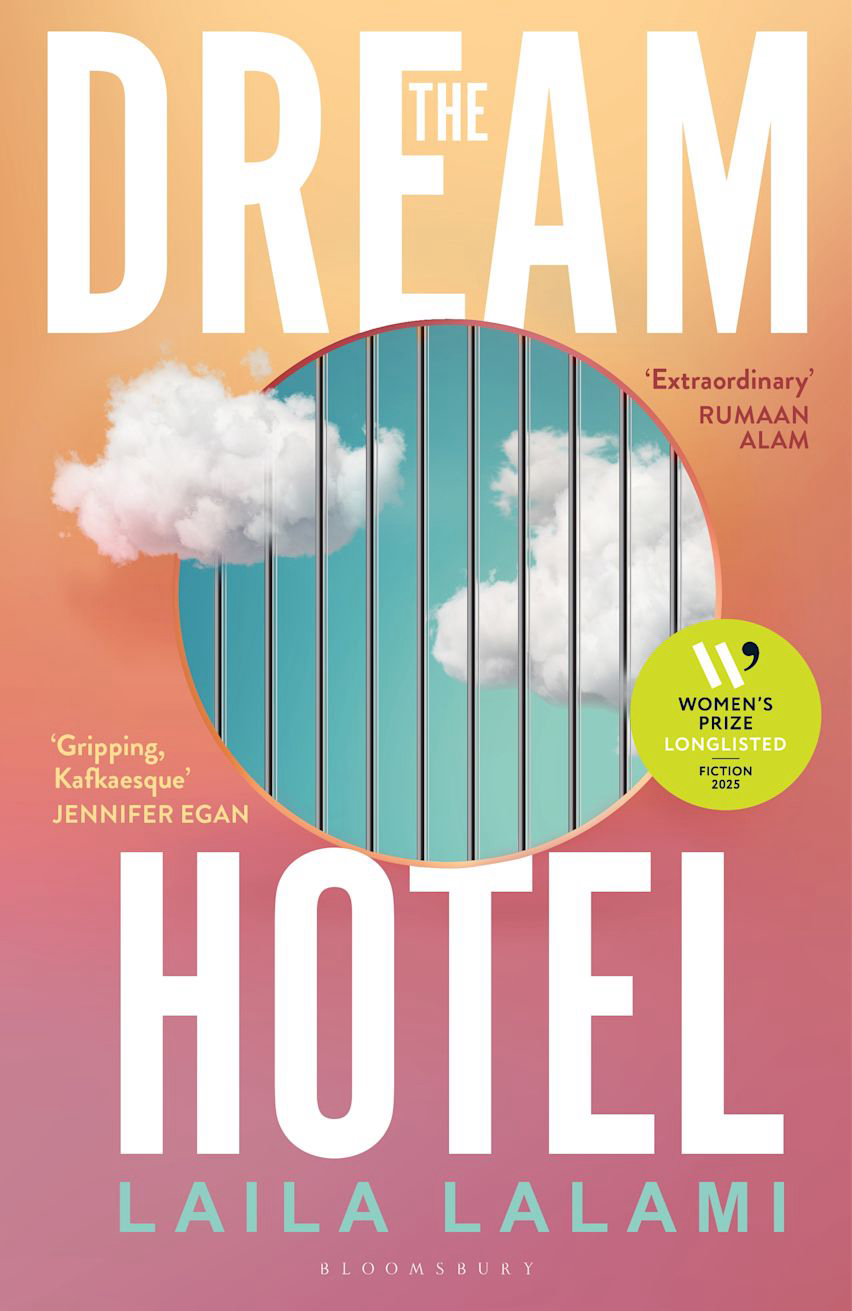
Author: Laila Lalami
Genre: Dystopian / Literary Sci‑Fi / Psychological Thriller
Ideal For: Fans of Minority Report–style surveillance dramas, AI dystopias, and empathetic, character-driven speculative fiction
Why I Picked Up The Dream Hotel
Laila Lalami, celebrated for The Moor’s Account and The Other Americans, takes a bold leap into near-future dystopia with The Dream Hotel, long‑listed for the Women’s Prize for Fiction.
The premise—a “Dreamsaver” AI implant that records and analyses dreams, used by an authoritarian surveillance state—is eerily resonant today. It promised tense storytelling, timely cultural critique, and a nuanced human center.
Plot Summary (Spoiler‑Free)
In 2039 America, government and corporations have united to preemptively detain people classified as at-risk via a “Risk Score” derived from biometric data, dream snippets, even mundane online habits.
Sara Hussein, a Moroccan‑American archivist and mother of twins, returns home from London and is arrested at LAX. Her dreams are deemed hazardous by algorithm. She’s sent to Madison—a repurposed school functioning as a private “retention center”—where routine infractions extend her detention indefinitely.
As bureaucracy tightens and hope dims, Sara must navigate oppressive tech-driven control, all while desperately fighting to reunite with her family.
Interspersed with her narrative are memos, transcripts, corporate reports, and Terms‑of‑Service excerpts. These are fragments that build the world outside Sara’s cell, making us complicit in the system’s logic.
Why It Works So Well
1. Eerily Plausible Tech and Bureaucracy
Inspired by surveillance capitalism, The Dream Hotel feels like it’s already here. Sara didn’t sign up to relinquish her mind: she merely wanted better sleep. But dreams, processed for profit and control, become a weaponised tool. The spy‑novel façade hides a sobering truth: algorithms don’t capture humanity; they exploit it.
2. Sara’s Inner World Is Real and Haunting
Sara’s imprisonment is not pulpy thriller fodder. Her internal monologue—anger smothered to avoid extensions, flashbacks to toddler tantrums, exhaustion—evokes Kafkaesque claustrophobia. Her smallest acts—foot presses, poem scribbles, forbidden calls—cement her dignity. NPR notes: “She’s the beating heart of this remarkable story”.
3. Built with Structural Genius
Lalami mixes letters, memos, transcripts with present‑tense narration to build tension and authenticity. Corporate memos show the market logic behind detention; detention-center records reveal accelerating absurdity. The structure tightens tone and grounds sociopolitical critique in concrete human experience.
4. Cultural Resonance and Social Critique
The dystopia echoes the present: data-selling on all fronts, pre-crime fantasies justified by safety, and corporate‑run incarceration. It depicts exploiting “our every movement, indeed practically every thought”. Lalami also writes a very nuanced portrait of class, race, and gender in surveillance systems.
5. An Ethical Core Beyond Speculation
More Orwellian prophecy, The Dream Hotel centers on small resistances—Sara’s connections with other detainees, her subtle subversions, her quiet refusal to obey. Lalami extends a lifeline of hope and solidarity: compliance can’t outlast collective will.
Where It Could Have Pushed Harder
- Pacing in the second half – Subplots, like wildfires or norovirus outbreaks, emerge, narrative momentum blurs before a sudden resolution. The ending feels abrupt, but maybe that mirrors institutional sudden judgment.
- Character reach – Most of the narrative is centered on Sara. B-side characters lack development. But that claustrophobia also feels intentional, underlining how data-driven systems erase individuality.
You’ll Love This Book If You Enjoy…
- Minority Report-style pre-crime dystopias, reimagined as lived human stories
- Psychological prisons & Kafkaesque family dramas
- Literary sci-fi with feminist and postcolonial depth
- Tense narratives that make you rethink convenience vs privacy
Personal Highlights
- Dream as Evidence – The stakes of your REM life being used against you made me reconsider every algorithmic contract I’ve scrolled through.
- Retention‑Center Rituals – Paying for tampons, clean sheets, even email—micropayments becoming micro‑punishments.
- Bold Language – Sara’s line: “It doesn’t tell the truth, either,” resonates as a keystone critique of AI “facts”.
- Quiet Hope – Resistance with language, connection, little acts of defiance—even an escape plan that feels human, not heroic.
Final Thoughts: A Wake-Up Call in Fiction
The Dream Hotel is fiction that matters. Its near-future plausibility is the source of dread, but it’s the empathetic storytelling and rich thematic layering that keeps it grounded and humane. Sara’s story isn’t futuristic—it’s possible. Lalami’s book is a mirror: our devices monitor us, our data profiles predict us—we give too much away for too little in return.
This is a five-star novel: prophetic, humane, and terrifyingly possible. Read it before your dreams become tomorrow’s data point.
Related Posts:


